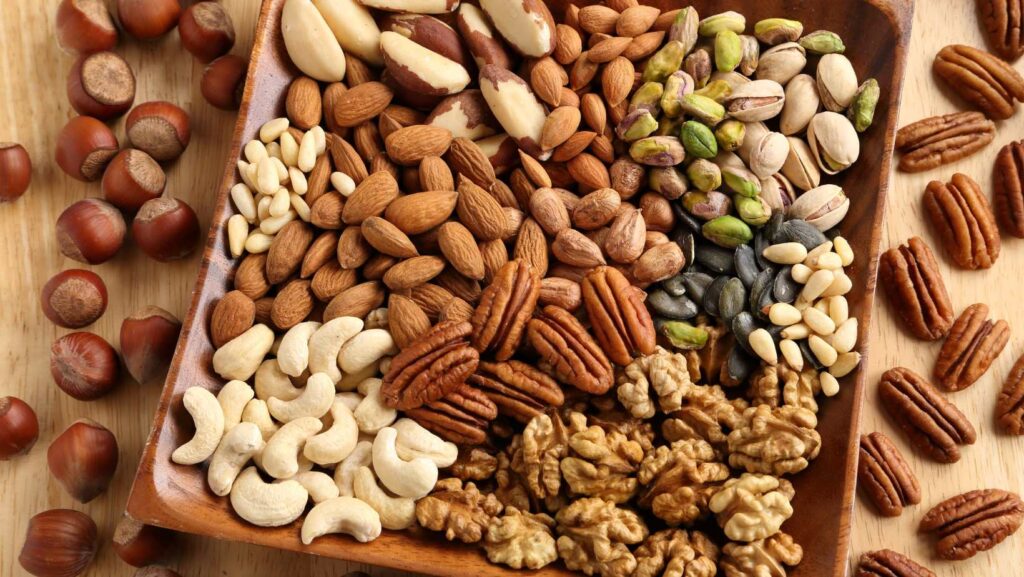Hydration plays a crucial role in maintaining digestive health. Proper hydration supports various digestive processes, from breaking down food to absorbing nutrients and facilitating bowel movements. Understanding the role of hydration in managing digestive health issues helps in making informed choices about fluid intake and dietary habits. This blog will explore the importance of hydration for digestive health, discuss how it impacts specific digestive conditions, and provide practical tips for staying hydrated.
Understanding the Role of Hydration in Digestion
Hydration is essential for the body’s overall functioning, including the digestive system. Water helps in the digestion and absorption of nutrients, supports the movement of food through the digestive tract, and aids in waste elimination.
1. Facilitates Digestion and Nutrient Absorption
Water is crucial for breaking down food and aiding in the absorption of nutrients in the digestive system.
- Digestion: Water helps dissolve soluble fiber, creating a gel-like substance that slows down digestion, allowing for better nutrient absorption.
- Nutrient Absorption: Water aids in the absorption of water-soluble vitamins and minerals. It helps transport these nutrients across the intestinal wall into the bloodstream.
2. Supports Bowel Movements
Hydration plays a key role in maintaining regular bowel movements and preventing constipation.
- Stool Formation: Water helps soften stool, making it easier to pass through the digestive tract. Proper hydration prevents hard, dry stools, which can lead to constipation.
- Bowel Regularity: Adequate water intake supports smooth muscle function in the intestines, promoting regular bowel movements.
3. Maintains Mucosal Lining
Water helps maintain the mucosal lining of the digestive tract, protecting it from irritation and damage.
- Protective Barrier: The mucosal lining produces mucus that acts as a barrier against harmful substances and pathogens. Hydration helps keep this lining moist and functional.
- Prevents Irritation: A well-hydrated mucosal lining prevents irritation and inflammation in the digestive tract, reducing the risk of conditions like ulcers and gastritis.
Hydration and Specific Digestive Conditions
Proper hydration is particularly important for managing various digestive conditions, including diverticulitis, irritable bowel syndrome (IBS), inflammatory bowel disease (IBD), and gastroesophageal reflux disease (GERD).
1. Hydration and Diverticulitis
Diverticulitis involves inflammation or infection of small pouches (diverticula) in the colon. Proper hydration helps manage this condition by preventing constipation and reducing strain on the colon.
- Role of Hydration: Adequate water intake softens stool and prevents constipation, reducing pressure on the colon and minimizing the risk of diverticula inflammation.
- Recommendations: Drink at least 8-10 glasses of water daily and include hydrating foods like cucumbers and watermelon in your diet.
For more detailed information on managing diverticulitis, visit this guide on foods to avoid with diverticulitis.
2. Hydration and IBS
Irritable bowel syndrome (IBS) is characterized by symptoms like cramping, bloating, gas, diarrhea, and constipation. Hydration helps manage these symptoms by supporting bowel regularity and preventing dehydration.
- Role of Hydration: Proper hydration helps regulate bowel movements and prevent both constipation and diarrhea. It supports the digestive process and reduces the risk of symptoms worsening.
- Recommendations: Drink water throughout the day and avoid beverages with artificial sweeteners or high sugar content, as they can trigger IBS symptoms.
3. Hydration and IBD
Inflammatory bowel disease (IBD), including Crohn’s disease and ulcerative colitis, involves chronic inflammation of the digestive tract. Hydration supports overall digestive health and helps manage inflammation.
- Role of Hydration: Adequate water intake helps maintain the mucosal lining and supports the function of the immune system in the digestive tract. It also helps prevent dehydration, a common concern during IBD flare-ups.
- Recommendations: Drink plenty of water, especially during flare-ups when diarrhea can lead to significant fluid loss. Include electrolyte-rich beverages if needed to prevent dehydration.
4. Hydration and GERD
Gastroesophageal reflux disease (GERD) involves chronic acid reflux that can damage the esophagus lining. Hydration helps manage GERD symptoms by aiding digestion and reducing acid concentration.
- Role of Hydration: Water can help dilute stomach acid, reducing the severity of acid reflux symptoms. It also supports digestion and helps prevent constipation, which can worsen GERD.
- Recommendations: Drink water between meals to avoid overfilling the stomach, which can trigger reflux. Avoid carbonated and caffeinated beverages that can relax the lower esophageal sphincter.
Best Hydration Practices for Digestive Health
Implementing proper hydration practices helps support digestive health and manage various digestive conditions effectively. Here are some tips:
1. Drink Plenty of Water
Water is the best choice for staying hydrated and supporting digestive health.
- Daily Intake: Aim for at least 8-10 glasses of water daily. Adjust intake based on factors like climate, activity level, and individual health needs.
- Timing: Drink water throughout the day rather than consuming large amounts at once. This approach helps maintain consistent hydration and supports digestion.
2. Include Hydrating Foods
Incorporate foods with high water content into your diet to boost overall hydration.
- Examples: Include fruits like watermelon, strawberries, and oranges, and vegetables like cucumbers, lettuce, and celery. These foods provide additional hydration and essential nutrients.
3. Limit Dehydrating Beverages
Certain beverages can contribute to dehydration and should be consumed in moderation.
- Caffeinated Drinks: Limit coffee, tea, and energy drinks, as caffeine can increase urine output and contribute to dehydration.
- Alcoholic Beverages: Alcohol can have a diuretic effect, leading to fluid loss. Drink alcohol in moderation and balance it with water intake.
4. Avoid Sugary and Artificially Sweetened Drinks
Sugary drinks and those with artificial sweeteners can exacerbate digestive symptoms and should be limited.
- Sugary Beverages: Avoid sodas, energy drinks, and fruit juices with added sugars. These can disrupt gut health and contribute to inflammation.
- Artificial Sweeteners: Limit drinks with artificial sweeteners like sorbitol and aspartame, which can cause gas and bloating in some individuals.
Foods to Avoid with Digestive Conditions
Alongside proper hydration, avoiding certain foods helps manage digestive conditions and reduce symptoms.
1. Foods to Avoid with Diverticulitis
For individuals with diverticulitis, avoiding specific foods helps manage the condition and prevent flare-ups.
- High-Fat Foods: Avoid fried foods, fatty cuts of meat, and processed snacks. These can increase inflammation and worsen symptoms.
- Red Meat: Limit the intake of beef, lamb, and pork. Choose lean proteins like chicken, turkey, and fish to reduce the risk of symptoms.
- Dairy Products: Avoid whole milk, cream, cheese, and butter if they cause symptoms. Opt for low-fat or lactose-free alternatives.
- Refined Grains: Avoid white bread, white rice, and pastries. Choose whole grains like brown rice, whole wheat bread, and oats.
- Certain Fruits and Vegetables: Avoid tomatoes, strawberries, raspberries, corn, and bell peppers. Peel fruits and vegetables and avoid seeds.
- Nuts and Seeds: Avoid almonds, sunflower seeds, and popcorn, especially during an active flare-up.
- Sugary Foods: Limit sweets, candies, and sugary drinks.
For more detailed information on foods to avoid with diverticulitis, visit this guide on foods to avoid with diverticulitis.
2. Foods to Avoid with IBS
Individuals with IBS should avoid foods that can trigger symptoms like gas, bloating, and diarrhea.
- High-FODMAP Foods: Avoid foods like garlic, onions, beans, and certain fruits like apples and pears.
- Dairy-Based Products: Limit dairy if lactose intolerance is a trigger. Choose lactose-free or plant-based alternatives.
- Artificial Sweeteners: Avoid sweeteners like sorbitol and xylitol, which can cause digestive issues.
- Caffeinated Beverages: Reduce coffee, tea, and energy drinks if they exacerbate symptoms.
3. Foods to Avoid with IBD
For individuals with IBD, certain foods can worsen symptoms during flare-ups.
- High-Fiber Foods: Avoid high-fiber foods like raw vegetables, nuts, and seeds during flare-ups.
- Spicy Foods: Limit spicy foods that can irritate the digestive tract.
- Alcohol: Avoid alcohol, as it can exacerbate inflammation and digestive discomfort.
- Fried Foods: Limit fried foods that can cause digestive distress.
4. Foods to Avoid with GERD
For those with GERD, certain foods can trigger acid reflux and heartburn and should be avoided.
- Spicy Foods: Avoid hot peppers, chili powder, and spicy sauces.
- Fatty Foods: Limit high-fat foods that can relax the lower esophageal sphincter.
- Citrus Fruits: Avoid acidic fruits like oranges, lemons, and grapefruits.
- Caffeinated Beverages: Reduce coffee, tea, and sodas.
Tips for Staying Hydrated
Maintaining proper hydration involves more than just drinking water. Here are practical tips to stay hydrated and support digestive health:
1. Carry a Water Bottle
Keeping a water bottle with you encourages regular water intake throughout the day.
- Convenience: Choose a reusable water bottle that you can refill easily. This practice helps you track your water intake and ensures you have water available at all times.
- Reminders: Set reminders on your phone or use apps that prompt you to drink water regularly.
2. Start and End Your Day with Water
Drinking water at the beginning and end of your day helps maintain hydration levels.
- Morning Routine: Start your day with a glass of water to kickstart your metabolism and hydrate after a night’s sleep.
- Evening Routine: Drink a glass of water before bed to support overnight hydration.
3. Flavor Your Water
If you find plain water unappealing, flavoring it with natural ingredients can make it more enjoyable.
- Natural Additions: Add slices of lemon, lime, cucumber, or fresh herbs like mint to your water. These additions enhance the flavor without adding sugars or artificial ingredients.
4. Monitor Urine Color
The color of your urine can indicate your hydration status.
- Pale Yellow: Aim for urine that is pale yellow, which indicates proper hydration.
- Dark Yellow: Dark yellow or amber-colored urine may indicate dehydration, signaling the need to increase water intake.
5. Balance Fluid Intake with Electrolytes
In cases of significant fluid loss, such as during diarrhea or intense exercise, balancing water intake with electrolytes is important.
- Electrolyte Solutions: Use electrolyte solutions or drinks to replenish lost minerals. Choose options with minimal added sugars and avoid artificial ingredients.
When to Seek Medical Help
Knowing when to seek medical help for hydration-related issues ensures timely intervention and effective treatment.
Persistent Symptoms
Consult a healthcare provider if you experience persistent symptoms of dehydration, such as dry mouth, fatigue, dizziness, or infrequent urination. These symptoms may indicate a need for medical evaluation and intervention.
Severe Symptoms
Seek immediate medical attention for severe dehydration symptoms like confusion, rapid heartbeat, or fainting. These symptoms could signal serious dehydration requiring urgent treatment.
Regular Check-Ups
Schedule regular check-ups to monitor your overall health and hydration status, especially if you have a digestive condition. Discuss any concerns about hydration and digestive health with your healthcare provider for ongoing management.
Conclusion
Understanding the role of hydration in managing digestive health issues highlights the importance of maintaining proper fluid intake to support digestion, prevent constipation, and reduce inflammation. By incorporating good hydration practices, avoiding dehydrating beverages, and choosing hydrating foods, you can enhance your digestive health and manage symptoms of conditions like diverticulitis, IBS, IBD, and GERD. Developing a well-rounded hydration strategy is essential for overall well-being and optimal digestive function.
For more detailed information on foods to avoid with diverticulitis, visit this comprehensive guide on foods to avoid with diverticulitis.



